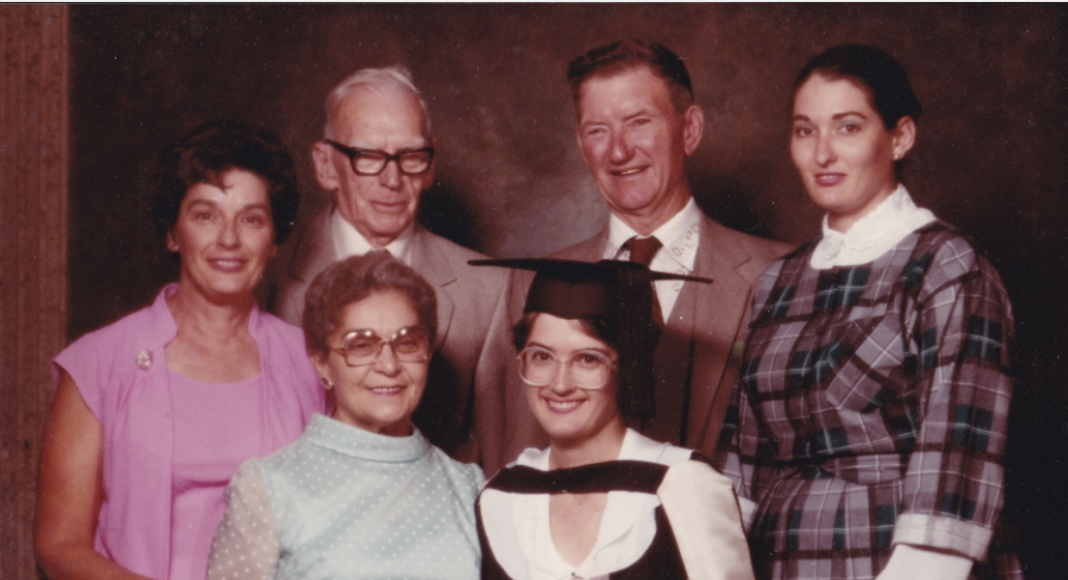The Greek Studies Department at Macquarie University is a melting pot of different students with some type of connection to the Greek language, or a passion to allow the language to live on.
Dr Elizabeth Kefallinos, a Senior Lecturer and Head of Greek Studies at Macquarie University, recognises this daily in her classes. When the time came for her to draft the assessment tasks for her 2nd year class, she decided to appoint them a task that would truly educate them on the importance of continuing the language.
“The topic of migration was given as a reflective task to students to create a micro-historical model from their family’s migration endeavour to Australia,” said Dr Kefallinos.
“I realised that the conceptualisation of the past, in the form of their family roots, gave them further knowledge and understanding of themselves and a strong sense of belonging to a broader family tree.”
One student, Eleanor Skinner, extended a particularly personal attachment to the assessment task, using the opportunity as a ‘mnimosyno’ to her Great-Great-Grandmother who migrated from Greece to Australia.
Eleanor was able to investigate her ancestors journey to Australia from a naturalisation certificate she located, and the National Archive of Australia records.
She describes the story of a young man, her great-great-grandfather ‘Mick’, who arrived in a very young and insecure Australia in 1914. At time, Australia was establishing its cultural identity, and the majority of its inhabitants were British emigrants. Mick’s naturalisation papers were reflective of the shift in Australia’s cultural identity, where in 1922 he swore allegiance to ‘King George V’, whereas today citizens must swear allegiance to ‘Australia and its people’.
Eleanor used historical data to explain the racist culture that was highly prevalent in Australia at that time.
She was able to use records to discover that her grandfather was an “agricultural labourer” in Queensland, but could not find any documentation of what his profession was in Greece.
She also found documentation that confirmed that Mick’s daughter, Zepharina, lived in a boarding school in Australia so that Mick was able to work, as he was a widow.
A chunk of her research was focused on the loss of Grecian identity and assimilation that Mick and Zepharina were subjected to upon arrival in Australia.
“There was a loss of their Grecian identity on the part of both Mick and Zepharina. Mick was required to officially renounce his Greek citizenship in order to apply for naturalisation, and Zepharina lost the majority of her knowledge of the Greek language, only regaining it when she studied the language as an adult,” wrote Eleanor.
Eleanor was able to gain a perspective on her great-great-grandfather Mick’s character, through character witness statements on his naturalisation papers.
This research gave Eleanor an opportunity to understand and empathise with the difficult decision her ancestors once faced over 100 years ago. She was able to comment on the political, economic and family conflicts that her ancestors once went through and try to understand them for herself, giving her a closer connection to the people who unknowingly shaped her life here today.
She found out that Zepharina was trained as a teacher, nurse and dressmaker, which is something that has been translated to her grandmother and mother.
“This value and emphasis on education has continued in our family, from Zepharina…to my grandmother, to my mother, who became a teacher herself,” wrote Eleanor.
The research task gave Eleanor a greater appreciation and understanding of how her life in Australia came to be.
“Overall, Mick’s courageous decision to leave Greece for the unknown risks of starting a new life in Australia has been a great success for his descendants.”
“On a personal level, writing the article has made me empathize more with my ancestors’ experiences and the difficulties they faced in deciding to emigrate, making the journey, integrating into Australia and having to face losing much of their culture and language,” wrote Eleanor.
She noted her connection to Zepharina and Mick, and how learning it accelerated her desire to learn the Greek language in order to keep this connection alive.
“Similarly to learning the Greek language, researching their context and story made them seem to me like real people I knew, rather than just the subject of family stories. I believe experiencing this connection to family and personal history is an important factor in forming our sense of self and embracing where we come from,” she wrote.
Dr Kefallinos was moved by all the personal anecdotes and research her class submitted.
“The task proved that the students indeed created a communicative avenue from the past to present and a connective path with their ancestors between one, two, three and, in the case of Eleanor’s history, even four generations,” said Dr Kefallinos.
When it came to Eleanor’s story, as a fourth-generation Greek-Australian, Dr Kefallinos was inspired to learn that Hellenism is still very much alive, even as generations move further away from direct lineage to Greece.
“Her personal story as a fourth-generation Greek…constitutes a living paradigm for young people to immerse educationally with their heritage… the Greekness is still alive in her soul,” said Dr Kefallinos.
